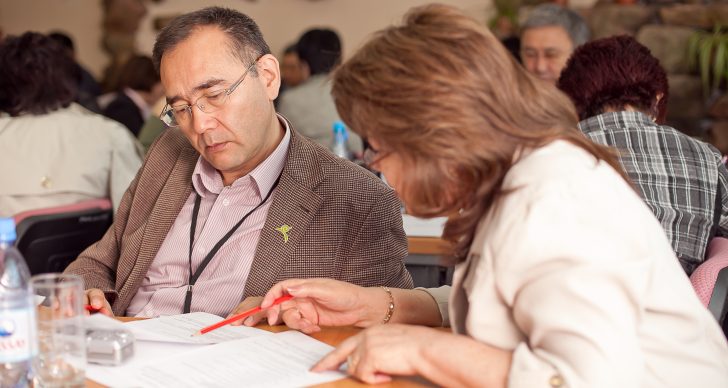Sarah Turner tells us about the and challenges and satisfactions involved in managing Cambridge Professional Development Qualifications.
A typical day could start by speaking to a new centre in Mongolia about becoming a Cambridge Professional Development Centre. Next, I might be doing a one to one with a school leader who needs support turning their aspirations into a realised training programme. Or, I might be presenting the benefits of Cambridge Professional Development Qualifications (PDQs) to a room full of principals.
What makes this job so rewarding is the fact that everyone who works on it believes wholeheartedly that the Cambridge PDQs truly transform teaching and learning.
Designed to support the Cambridge teacher and learner attributes and to underpin the teaching of all Cambridge programmes and qualifications, Cambridge PDQs are unique in that they are accredited by Cambridge but designed and delivered by a programme leader within each school.
Cambridge PDQs allow teachers and leaders to learn more about the science of teaching, and apply this new knowledge either in their classrooms or, in the case of leaders, across a project on which they are currently working. Candidates then work with a mentor to reflect on their learning and practice and to develop their strategies further.
While the structure of Cambridge PDQs and the syllabus outcomes are set to protect their integrity, the way that the outcomes are approached and the mode of delivery can be tailored to the needs of the candidates and ultimately the students in each individual environment. Worldwide, our team supports over 120 Cambridge Professional Development Centres, and this figure is growing every month.
Cambridge PDQs are delivered in a range of situations. From St Helena, which might have six candidates, to large training centres effecting country-wide change such as Tec de Monterrey in Mexico – its last submission was just short of 600 entries!
As Cambridge PDQs gain momentum and their range and spread become even greater, part of our role has been to ensure that our programme leaders and mentors feel connected to each other and to Cambridge.
The team has been working to expand the range of materials and resources that are available and to provide links to this growing network of professional development colleagues. We now offer initial training, new programme leader buddying, one-to-one support and a range of support materials and resources which can be used in training sessions.
As an ex-teacher myself, being involved with Cambridge PDQs has many privileges. Working alongside an extended team of inspirational teaching professionals is one, but so too is reading the portfolios submitted by candidates.
To attain a Certificate or Diploma in a Cambridge PDQ you must submit a portfolio of evidence which gives details of the environment in which our candidates are working, what they have learnt during their time on the programme and the changes that they have seen taking place – in their mindset, in their teaching and in their students.
Portfolio evidence demonstrates to us the shift that teachers are able to make after their experience on a Cambridge PDQ programme.
They are more collaborative:
‘Since the sessions, we have set up a WhatsApp group and we now use this to share pictures, images and thoughts on our lessons and to share best practice.’ Anna Waqas, Cambridge PDQ Certificate in Teaching with Digital Technologies.
They are more student-centred:
‘I plan more activities as well as implementing assessment for learning.’ Yue Wei, Cambridge PDQ Certificate in Teaching and Learning.
And they are able to help to embed good practice across their schools:
‘Once I had gained the Certificate in Teaching Bilingual Learners I moved into a coordination role. This has allowed me to implement the strategies I have learnt across the whole school.’ Ivana Barrios, Cambridge PDQ Certificate in Teaching Bilingual Learners.
The portfolios allow us a tiny peek into our centres and give us a flavour of what it is like to teach and learn in each environment.
Of course, a PDQ does not represent the conclusion of a teacher’s professional development journey. What they’ve embarked upon, embracing new teaching styles and new ideas and opening themselves up to change, should be seen as an ongoing process. Truly reflective practitioners will recognise that – as long as they remain open to them – opportunities for learning and development never really end.
Want to know more about the Cambridge PDQs? Contact the Cambridge PDQ team at info@cie.org.uk





